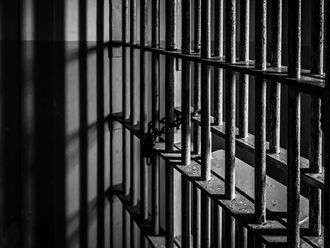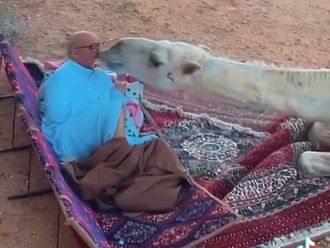Beni: Rebecca Masika lives within a kilometre of two army bases and a UN peacekeepers’ camp yet assailants crept into her town under cover of darkness last month and hacked to death two dozen people before melting away into the hills of eastern Congo.
Since last month, 120 people have been slaughtered in a wave of mysterious overnight massacres near Masika’s hometown of Eringeti, sowing panic and shattering confidence that Congolese and UN forces were making progress in stabilising the region.
The 23,000-strong UN mission has spent years, and billions of dollars, trying to bring peace to the east of this vast central African nation, where more than five million have died since a 1998-2003 civil war.
Dozens of armed groups prowl the region but the success of a tough new UN Intervention Brigade in helping the Congolese army to rout the largest of these, the Tutsi-led M23 militia, had raised hopes of an end to years of instability.
A year later, the killings in Beni, a territory rich in timber and minerals near the Ugandan border, have stirred up anger against the UN mission and President Joseph Kabila.
Violent protests have targeted UN bases in Beni.
“We are right near these military camps. How has this happened?” Masika asked, standing across the road from where a UN helicopter had touched down in an open field.
Authorities have blamed the killings on the Allied Democratic Forces, a Ugandan Islamist group that has operated in the rugged border region for two decades. Yet the ADF has not claimed responsibility and there is scant evidence.
After the success against M23, the Congolese army and UN force had trained their sights on ADF in an operation named Sukola, or “cleanup” in the local Lingala language.
The offensive was planned by a charismatic young colonel, Mamadou Ndala, who had helped lead the victorious campaign against the M23. Ndala, however, was killed in an ambush in January, two weeks before Operation Sukola’s launch.
Led by another respected officer, General Lucien Bahuma, the operation had by March dislodged ADF from all its known bases, prompting celebration in the region.
Eight months later, frightened residents wonder what went wrong. Some blame a letup in Operation Sukola following the death in August of General Bahuma, reportedly of a stroke.
“We dispersed the enemy but we didn’t destroy it,” said Teddy Kataliko, president of the Civil Society of Beni Territory. He said ADF’s political and economic networks, including the trade in illicit timber with Uganda, were intact.
Kabila is due to leave office at the end of 2016 after almost 16 years in power. Speculation is rife, however, that he will seek to revise the constitution to stand for a third term, or find a pretext to postpone elections.
The killings have aroused anger in Kabila’s eastern heartland. He visited Beni last week in a bid to reassure residents, but amid an outbreak of violence that left another two dozen dead, his stay only inflamed tensions.
Shortly after he left on Sunday, protesters toppled Kabila’s statue and set fire to ruling party flags.
Kataliko, like many locals, criticised the UN mission.
Residents in Beni accuse its troops of failing to confront an enemy that avoids the main routes where the peacekeepers patrol.
A UN spokesman said Congolese and UN police have arrested more than 200 suspects in the attacks, including members of the ADF, and recovered munitions, bombs and Motorola radios believed to have been used by the attackers.
Yet many believe the army is ignoring the attacks. Benders Undelema, a local chief in Eringeti, questioned the loyalties of Bahuma’s replacement at the helm of Operation Sukola, General Charles Akili Mohindo, accusing him of working with ADF.
“He’s playing both sides,” said Undelema in his office, beneath a poster honouring the late Colonel Ndala. The International Crisis Group in a 2012 report noted that military officers were routinely accused of colluding with ADF.
However, Colonel Olivier Hamuli, army spokesman in North Kivu, dismissed the accusation. “Mohindo is the commander of Operation Sukola. That is all,” he said.
However, more than a dozen defendants, including suspected ADF members and high-ranking military officers, are on trial for Ndala’s murder in Beni, fuelling suspicions of collusion.
Interior Minister Richard Muyej denied that security failures were to blame for the recent killings. He insisted that the armed forces retained the confidence of the population.
“When you take a survey, you realise that everyone is confident and believes in this army,” he said.
Several residents disagreed. “We live in insecurity here in Beni,” said Mami Kashirwandi, a local woman. “When the night comes, we don’t sleep. Everyone is afraid.” The UN mission says it has stepped up patrols and is reinforcing its presence to help the army fight the ADF. Troops from Tanzania, Nepal and Jordan are highly visible in the area.
But for people who have grown accustomed to waking up to news of fresh carnage, such reassurances ring hollow.
“We are waiting for solutions and we don’t see them,” said Stephane Kandoli, a technician in Beni.












